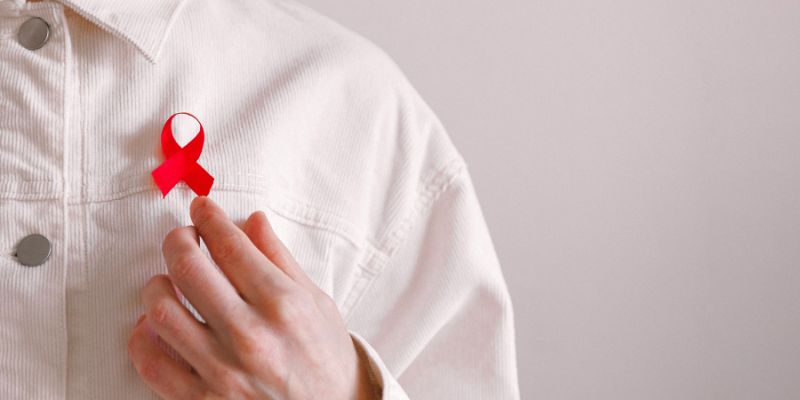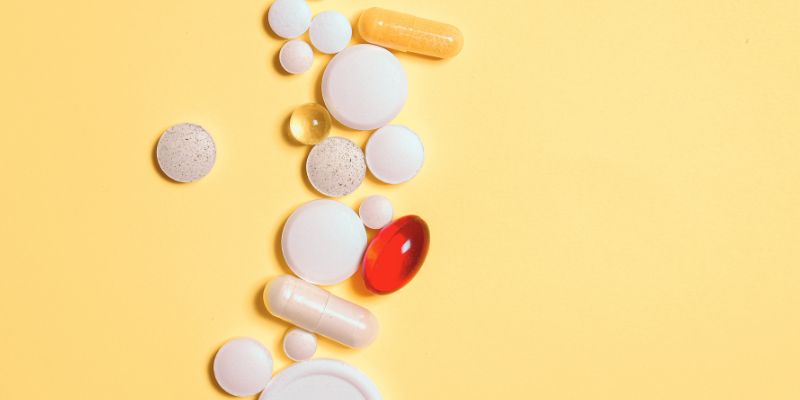Antiretroviral therapy, or ART, is recommended for everyone diagnosed with HIV. It is a combo of various medicines which either stop or slow down the growth of the virus in the patient. So, as soon as you are diagnosed with HIV, you must start medication. Though it will not cure HIV, it lets the patient live a long and healthy life and reduces the risk of HIV transmission significantly.
Remember that if you delay the HIV treatment, it will continue to damage your immune system. A delay in medication can put you at risk of developing AIDS. On the other side, continuing the treatment will decrease the viral load. Also, it will effectively reduce the risk of transmission.
Many types of medicines are available for HIV patients. If you are interested in learning more about the latest HIV treatment in detail, this article has all you are curious to learn about. So, sit back and learn How to cure HIV!

How Is HIV Treated?
There is no cure for HIV; once you get infected, it will live in your body for your whole life. But, with medicines, the growth of the virus can be controlled. It will also prevent any complications. The medicines are known as antiretroviral therapy.
The therapy combines medicines (two or more) from different drug classes. The treatment can effectively lower the HIV count. Many ART options combine medicines into one pill, which patients must take daily.
Every drug in the therapy belongs to a different class of drugs, and every medicine fights against the virus differently. For instance, the treatment will be a combination of different drugs from different classes, which will:
- Not create the drug-resistant HIV
- Suppresses the growth of virus in the blood
- Accounts for individual drug resistance
Generally, two drugs from the same class and one from another are used to treat HIV. The different classes or types of anti-HIV drugs are:
- Nucleotide Reverse Transcriptase Inhibitors: It is the faulty version of the building blocks that the virus uses for growth or multiplication.
- Non-Nucleoside Reverse Transcriptase Inhibitors: It will turn off the protein HIV needs for growth.
- Integrase Inhibitors: It inactivate the integrase, which is a protein, and HIV uses this protein to insert the genetic material into the CD4 T cells.
- Protease Inhibitors: It will inactivate the HIV protease, a protein which HIV needs to replicate itself.
- Entry Inhibitors: It inhibits the entry of the virus into the CD4 T cells. Examples include Selzentry and Fuzeon.
Everyone infected with HIV must start getting the medication regardless of their CD4 T counts or symptoms. Being HIV positive, your uttermost try should be to continue the retroviral therapy to keep the viral load minimum. It is the only way to stay healthy longer.
Besides that, you must also try to keep the immune system strong and reduce the risk of developing treatment-resistant HIV strains and getting an infection.

Emergency HIV Drugs
If you feel infected with HIV, the first medication you need is post-exposure prophylaxis (PEP). The drug will not let you get infected by HIV. It is recommended to start taking the medicine within 72 hours of viral exposure.
If you take the HIV treatment regularly for one month, you can develop certain side effects. Therefore, if you need treatment, get it from the GUM clinics or hospitals (mostly from the accident or emergency departments).
How Do HIV Medicines Work?
The virus attacks the CD4 cells, which are fighting against the infections. It weakens the immune system, so losing CD4 cells makes it challenging and harder for the body to fight against infections. Also, the body fails to fight against HIV-related cancers.
HIV therapy or medicines prevent the virus's multiplication and reduce the viral count in the body. So, with a lower viral load, the immune system gets relief, and the body starts recovering. Also, medication aids the body to produce more CD4 cells. Even if there is HIV in your body, the immune system and body are strong enough to kick them off.
On top of all, the medicines reduce the risk of HPV transmission. The medicines reduce the viral count so effectively that it becomes almost undetectable. And, if the viral load becomes undetectable, you cannot transfer the virus to anyone.
Benefits Of Taking HIV Medicines
- If you are taking the medicines regularly, it will keep the viral count lower.
- If you skip the medicines, the HIV will start copying and multiplying rapidly.
- A lower viral load will keep you healthy, and you cannot transmit the virus.
- You can develop drug resistance to HIV by not taking the medicines regularly, decreasing the chances of successful treatment. Drug-resistant strains can be transmitted to others.
Side effects of taking HIV medicines
HIV treatment can cause side effects in many people. For instance, a patient getting HIV therapy might witness the following:
- Diarrhea
- Dry mouth
- Rashes
- Vomiting and nausea
- Dizziness
- Headache
- Difficulty in sleeping
- Temporary pain after getting injections/shots
- Fatigue
Discuss these symptoms with your doctor and get the medicines accordingly if you witness them.
Why is HIV treatment so Necessary?
The treatment involves highly effective medicines that can control the virus's growth. Therefore, anyone diagnosed with HIV must start the medicines as early as possible; even starting the medicines on the same day you get diagnosed with HIV would be the best.
The treatment includes medicines of different types; besides that, instead of getting two or three different tablets, you can also go for one pill, as described earlier. Whatever treatment you prefer will keep you healthy, active, and alive longer!
Conclusion:
HIV is the most serious health threat humanity is facing at the moment. The virus is infecting thousands of people around the globe and is spreading speedily. As for the cure for diseases, that is not possible, but with antiretroviral therapy, the patient can live a long and healthy life.
The HIV treatment slows down or stops the virus reproduction in the patients. Also, it inhibits the transmission of HIV. Furthermore, medicines strengthen the immune system.




